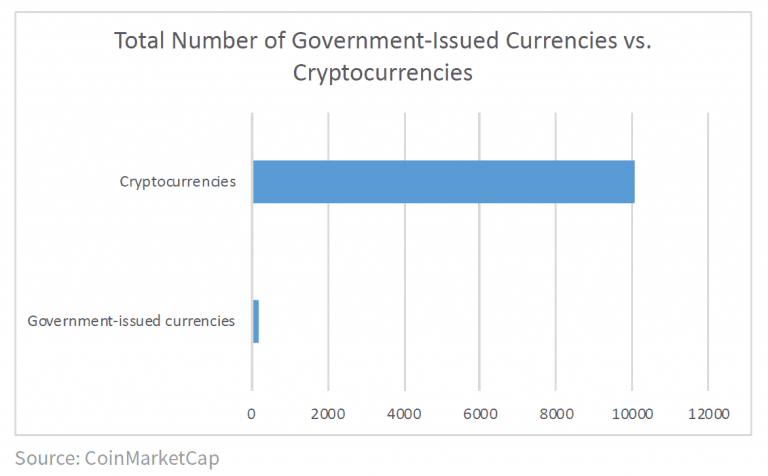How do Cryptocurrencies Compare to Traditional Currencies or Investments
Unlike traditional, government-issued currencies, cryptocurrencies are not sponsored by a government authority, are largely unregulated and confer no claims against any assets. Moreover, due to price volatility and transaction costs, cryptocurrencies are rarely used to conduct typical financial transactions. Consequently, cryptocurrencies are not widely accepted mediums of exchange despite the small number of companies that accept them as forms of payment.

Given the lack of utility as payment mechanisms, the majority of the interest in cryptocurrencies has been for their use as speculative investment vehicles, largely based on the perception that their value will increase due to codified supply limitations and/or excitement regarding the potential application of blockchain technology.
Prior to making an investment decision, please consult with your financial advisor about your individual situation. The prominent underlying risk of using Bitcoin as a medium of exchange is that it is not authorized or regulated by any central bank. Bitcoin issuers are not registered with the SEC, and the Bitcoin marketplace is currently unregulated. Bitcoin and other cryptocurrencies are very speculative investments and involve a high degree of risk. Investors must have the financial ability, sophistication/experience and willingness to bear the risks of an investment, and a potential total loss of their investment. Securities that have been classified as Bitcoin-related cannot be purchased or deposited in Raymond James client accounts
REGULATORY BACKGROUND | Financial Industry Regulatory Authority (“FINRA”) and the Securities and Exchange Commission (“SEC”) have issued multiple warnings to investors regarding the risks associated with Bitcoin and other cryptocurrency. New products and/or technology, such as Bitcoin and other cryptocurrency, are typically considered high-risk investment opportunities as they commonly are targeted by fraudsters who manipulate the market with artificial promotional scams. As of January 2021, the SEC is currently reviewing more than 10 applications and has rejected multiple applications from fund companies seeking to create and list a cryptocurrency Exchange Traded Product (“ETP”) due to the highly unregulated nature of the cryptocurrency marketplace. The biggest risk factors surrounding Bitcoin (and other cryptocurrency) issuers include that they are not registered with the SEC (or local country regulator) and can be exploited by criminals for money laundering/terrorist financing making the source of funds difficult to follow and verify.
RJF CRYPTOCURRENCY SECURITY DEFINITION | Approved cryptocurrency-related securities are defined as any security that is associated with a company and/or issuer that is:
1. Affiliated with a U.S. federally regulated cryptocurrency business operation;
2. Listed on a U.S.-recognized exchange (e.g., NYSE or Nasdaq); and
3. Subject to RJF Securities Review Group (SRG) approval.
Prohibited cryptocurrency-related securities are defined as any security that is associated with a company and/or issuer that is affiliated with one or more of,
but not limited to, the following non-U.S. federally regulated cryptocurrency business objectives:
1. Indexed to the underlying price movement of a cryptocurrency;
2. Cryptocurrency mining;
3. Cryptocurrency escrow services; and/or
4. Cryptocurrency exchange or payment services.
© 2021 Raymond James & Associates, Inc., member New York Stock Exchange/SIPC. © 2021 Raymond James Financial Services, Inc., member FINRA/SIPC. Investment products are: not deposits, not FDIC/NCUA insured, not insured by any government agency, not bank guaranteed, subject to risk and may lose value. Raymond James® is a registered trademark of Raymond James Financial, Inc. 21-BDMKT-5050 KS 5/21



